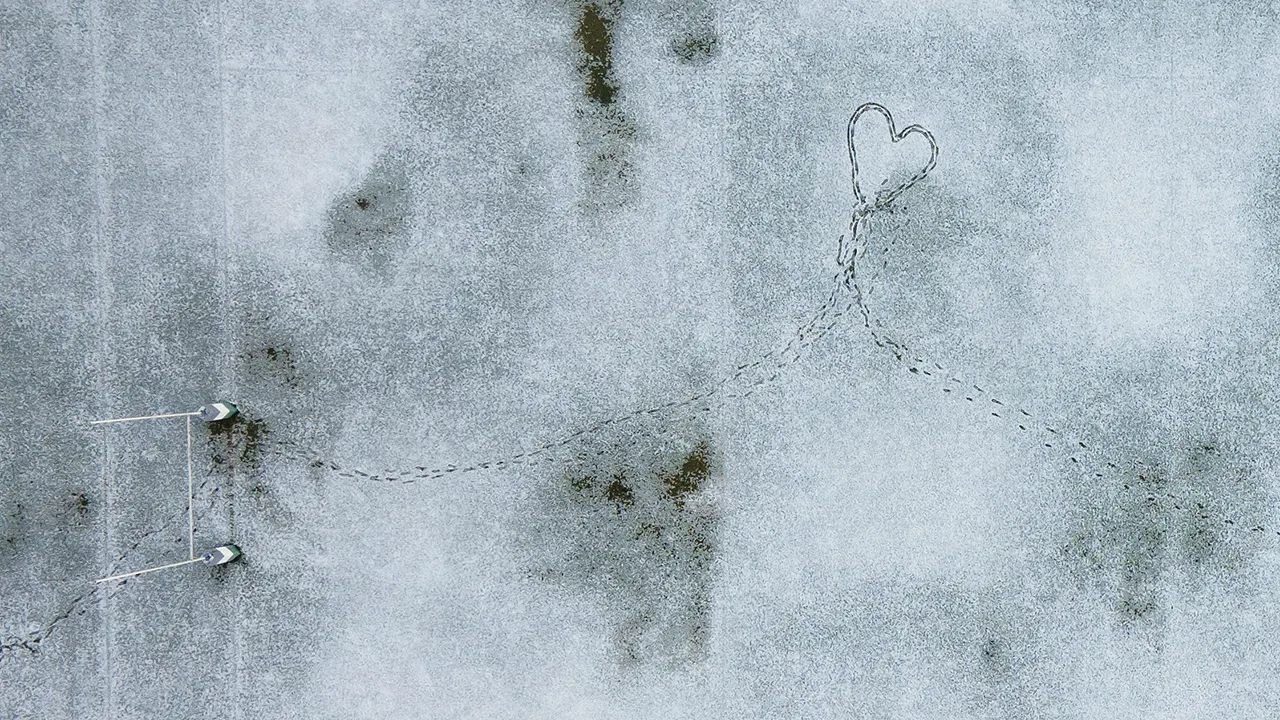World
Pride flags would be largely banned in Tennessee classrooms in bill advanced by GOP lawmakers
NASHVILLE, Tenn. (AP) — A bill that would largely ban displaying pride flags in public school classrooms was passed by the GOP-led Tennessee House on Monday after Republicans cut a heated debate short.
The 70-24 vote sends the legislation to the Senate, where a final vote could happen as early as this week. The motion to cut off debate prompted Democratic Rep. Justin Jones, of Nashville, to yell that House Speaker Cameron Sexton was out of order and ignoring people’s requests to speak. Republicans in turn scolded Jones by voting him out of order, halting his immediate comments.
Before that, at least two people against the bill were kicked out of the gallery due to talking over the proceedings as Democrats and other opponents blasted the legislation as unfairly limiting a major symbol of the LGBTQ+ community in schools.
“I am proud when I walk into the public schools in my city, to see the LGBTQ flag in the classrooms, proudly put up by teachers who understand the suffering that many of their students go through,” said Rep. Jason Powell, a Nashville Democrat. “We should be welcoming and celebrating our students, not hating on them.”
The legislation says “displaying” a flag by a school or employee means to “exhibit or place anywhere students may see the object.”
The proposal would allow certain flags to be displayed, with exceptions for some scenarios. Among those approved would be the flags of the United States; Tennessee; those deemed protected historical items under state law; Native American tribes; local governments’ armed forces and prisoners of war or those missing in action; other countries and their local governments; colleges or universities; or the schools themselves.
Other flags could be temporarily displayed as part of a “bona fide” course curriculum, and certain groups allowed to use school buildings can show their flags while using the grounds under the bill.
The legislation sets up an enforcement system that relies on lawsuits by parents or guardians of students who attend, or are eligible to attend, public school in a district in question. The lawsuits could challenge the display of flags by a school, employee or its agents that wouldn’t fall under proposed criteria for what would be allowed in classrooms.
Republican Rep. Gino Bulso, the bill sponsor from Williamson County south of Nashville, said parents reached out to him with complaints about “political flags” in classrooms. When pressed about whether the bill would allow the Confederate flag to be on display in classrooms, Bulso said the bill would not change the current law about when such a symbol could be shown. He said the bill’s exceptions could be applied on Confederate flags for approved curriculum and certain historical items that already cannot be removed without extensive state approval.
“What we’re doing is making sure parents are the ones who are allowed to instill in their children the values they want to instill,” Bulso said.
The proposal marks another development in the ongoing political battle over LGBTQ+ rights in Tennessee, where the state’s conservative leaders have already moved to restrict classroom conversations about gender and sexuality, ban gender-affirming care and limit events where certain drag performers may appear.
The Senate’s version of the bill would be more restrictive about who could sue over a flag, limiting it to that specific school’s students, parents or guardians of those students or employees there.
Earlier this month, the American Civil Liberties Union sent a letter to town, school, and school district officials who have implemented or are considering flag bans or other pride displays. The group warned that under First Amendment court precedent, “public schools may prohibit private on-campus speech only insofar as it substantially interferes with or disrupts the educational environment, or interferes with the rights of other students.”
Bulso contended that displaying the pride flag does not constitute protected free speech for school employees.

World
Ukraine's divisive mobilization law comes into force as a new Russian push strains front-line troops
KYIV, Ukraine (AP) — A divisive mobilization law in Ukraine came into force on Saturday, as Kyiv struggles to boost troop numbers after Russia launched a new offensive that some fear could close in on Ukraine’s second-largest city.
The legislation, which was watered down from its original draft, will make it easier to identify every conscript in the country. It also provides incentives to soldiers, such as cash bonuses or money toward buying a house or car, that some analysts say Ukraine cannot afford.
Lawmakers dragged their feet for months and only passed the law in mid-April, a week after Ukraine lowered the age for men who can be drafted from 27 to 25. The measures reflect the growing strain that more than two years of war with Russia has had on Ukraine’s forces, who are trying to hold the front lines in fighting that has sapped the country’s ranks and stores of weapons and ammunition.
Ukrainian President Volodymyr Zelenskyy also signed two other laws Friday, allowing prisoners to join the army and increasing fines for draft dodgers fivefold. Russia enlisted its prisoners early on in the war, and personnel shortages compelled Ukraine to adopt the new measures.
Russian troops, meanwhile, are pushing ahead with a ground offensive that opened a new front in northeastern Ukraine’s Kharkiv region and put further pressure on Kyiv’s overstretched military. After weeks of probing, Moscow launched the new push knowing that Ukraine suffered personnel shortages, and that its forces have been spread thin in the northeast.
Russian President Vladimir Putin said on Friday during a visit to China that the Russian push aims to create “a buffer zone” rather than capturing Kharkiv, the local capital and Ukraine’s second-largest city.
Still, Moscow’s forces have pummeled Kharkiv with strikes in recent weeks, hitting civilian and energy infrastructure and prompting angry accusations from Zelenskyy that the Russian leadership sought to reduce the city to rubble. On Friday, Mayor Ihor Terekhov said that Russian guided bombs killed at least three residents and injured 28 others that day.
Moscow denies deliberately targeting civilians, but thousands have died or suffered injuries in the more than 27 months of fighting.
The U.S. last week announced a new $400 million package of military aid for Ukraine, and President Joe Biden has promised that he would rush badly needed weaponry to the country to help it stave off Russian advances. Still, only small batches of U.S. military aid have started to trickle into the front line, according to Ukrainian military commanders, who said it will take at least two months before supplies meet Kyiv’s needs to hold the line.
Thousands of Ukrainians have fled the country to avoid the draft since Russia’s all-out invasion in February 2022, some risking their lives as they tried to swim across a river separating Ukraine from neighboring Romania and Hungary.
Late on Friday, Ukraine’s border service said that at least 30 people have died trying to cross the Tisza River since the full scale-invasion.
Romanian border guards days earlier retrieved the near-naked, disfigured body of a man that appeared to have been floating in the Tisza for days, and is the 30th known casualty, the Ukrainian agency said in an online statement. It said the man has not yet been identified.
___
Follow AP’s coverage at https://apnews.com/hub/russia-ukraine
World
An unusual autumn freeze grips parts of South America, giving Chile its coldest May in 74 years

Chileans are bundling up for their coldest autumn in more than 70 years mere days after sunning in T-shirts — a dramatic change of wardrobe brought on this week by a sudden cold front gripping portions of South America unaccustomed to bitter wind chills this time of year.
CHILE SHUTS DOWN A POPULAR GLACIER, SPARKING DEBATE OVER CLIMATE CHANGE AND ADVENTURE SPORTS
Temperatures broke records along the coast of Chile and in Santiago, the capital, dipping near freezing and making this month the coldest May that the country has seen since 1950, the Chilean meteorological agency reported.
An unusual succession of polar air masses has moved over southern swaths of the continent, meteorological experts say, pushing the mercury below zero Celsius (32 Fahrenheit) in some places. It’s the latest example of extreme weather in the region — a heat wave now baking Mexico, for instance — which scientists link to climate change.
Footprints create the shape of a heart in a snow-covered rugby field in Santiago, Chile, Wednesday, May 8, 2024. (AP Photo/Matias Basualdo)
“The past few days have been one of the longest (cold fronts) ever recorded and one of the earliest ever recorded” before the onset of winter in the Southern Hemisphere, said Raul Cordero, a climatologist at Santiago University. “Typically the incursions of cold air from the Antarctic that drive temperatures below zero occur from June onwards, not so much in May.”
The cold front sweeping in from Antartica has collided with warm air pushing in from the northwestern Amazon, helping fuel heavy rainstorms battering Brazil, according to that country’s National Meteorological system.
Chile’s government issued frosty weather alerts for most of the country and ramped up assistance for homeless people struggling to endure the frigid temperatures on the streets. Snow cloaked the peaks of the Andes and fell in parts of Santiago, leading to power outages in many areas this week.
“Winter came early,” said Mercedes Aguayo, a street vendor hawking gloves and hats in Santiago.
She said she was glad for a boost in business after Chile’s record winter heat wave last year, which experts pinned on climate change as well as the cyclical El Niño weather pattern.
“We had stored these goods (hats and gloves) for four years because winters were always more sporadic, one day hot, one day cold,” Aguayo said.
This week’s cold snap also took parts of Argentina and Paraguay by surprise.
Energy demand soared across many parts of Argentina. Distributors cut supplies to dozens of gas stations and industries in several provinces to avoid outages in households, , the country’s main hydrocarbon company, CECHA, said Thursday.
World
Brussels, my love? Transparency over MEPs' side jobs

In this edition, we look at what lawmakers’ extracurricular activities mean for their core role.
This week, we are joined by Sophia Russack, senior researcher from the Centre for European Policy Studies, Petros Fassoulas, secretary general of European Movement International and Anna Nalyvayko, senior project officer from the Wilfried Martens Center.
Panelists debate the ethical questions raised by MEPs who have side jobs. Those extra roles are legal, but the political earthquake caused by the Qatarargate scandal led to tighter rules and more transparency.
Is this enough to bridge the gulf between citizens and politicians, in today’s fractured political landscape?
“We see that they have improved rules when it comes to reporting requirements, to laying open your financial situation before and after the offers, and so on. But to be honest, none of these things will prevent another Qatargate,” said Sophia Russack, a think tanker who is an expert in EU institutional architecture, decision-making processes and institutional reform.
Despite these concerns, Petros Fassoulas said MEPs shouldn’t abandon contact with the real world altogether.
“It’s important for them to have the opportunity to bring expertise from outside and engage also with the world outside of the chamber,” Fassoulas said. “An MEP or any parliamentarian should be in contact with the people that they regulate, the businesses that they have an impact on.”
Guests also discussed the reasons for the crisis of public confidence in politicians, and gave some ideas for solutions.
Watch “Brussels, my love?” in the player above.
-

 World1 week ago
World1 week agoPentagon chief confirms US pause on weapons shipment to Israel
-

 Politics1 week ago
Politics1 week agoRFK Jr said a worm ate part of his brain and died in his head
-

 Politics1 week ago
Politics1 week agoOhio AG defends letter warning 'woke' masked anti-Israel protesters they face prison time: 'We have a society'
-

 News1 week ago
News1 week agoNine Things We Learned From TikTok’s Lawsuit Against The US Government
-

 Politics1 week ago
Politics1 week agoBiden’s decision to pull Israel weapons shipment kept quiet until after Holocaust remembrance address: report
-

 Education1 week ago
Education1 week agoVideo: Police Use Pepper Spray on Protesters on G.W.U.’s Campus
-

 World1 week ago
World1 week agoA look at Chinese investment within Hungary
-

 News1 week ago
News1 week agoThe Major Supreme Court Cases of 2024

















